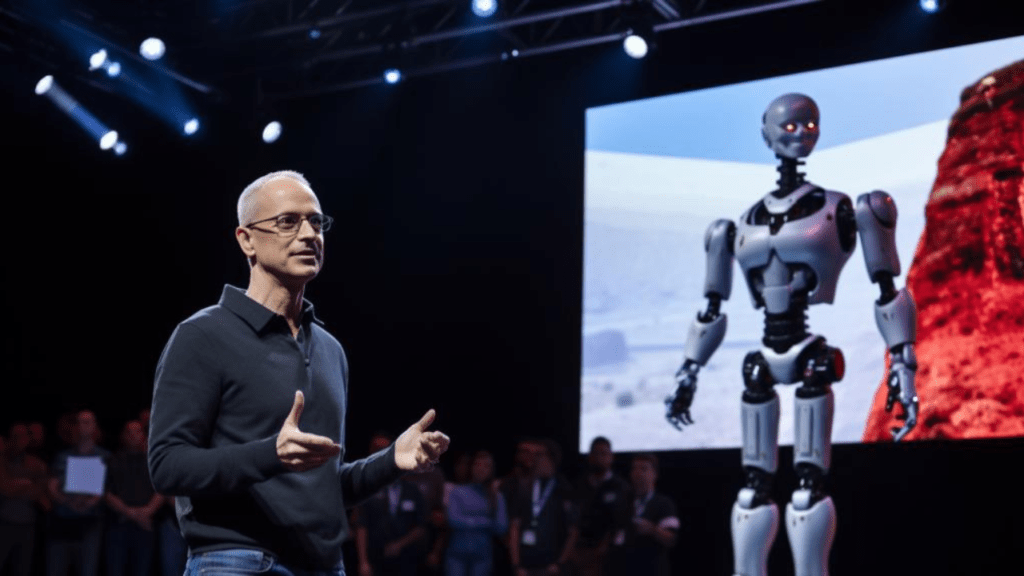Photo was created by Webthat using MidJourney
Microsoft’s Commitment to Advancing AI
Eric Boyd, Microsoft’s corporate vice president of AI Platforms, affirms the company’s determination to accelerate its work on large AI models.
Despite concerns raised by some experts about the technology’s rapid growth and unpredictability, Microsoft sees the potential of AI to drive human productivity and foster global economic growth as a powerful force that should not be overlooked.
Microsoft’s Investment in OpenAI
In 2019, Microsoft invested $1 billion in OpenAI, a leading AI start-up. Leveraging its financial resources and computing power through Azure, Microsoft played a significant role in the development of GPT4, the world’s most powerful “large language model”.
GPT4, now known as ChatGPT, was integrated into Microsoft’s Bing search engine and other software products like Copilot, a virtual digital assistant.
Redefining the People-Computer Relationship
Microsoft’s vision for AI centers around transforming the interaction between humans and computers. Rather than seeking planetary takeover, the focus is on redefining interfaces and enabling more language-based communication.
Boyd highlights the potential for AI to reshape familiar interaction methods, such as keyboards and mice, and usher in a new era of human-computer interaction.
Addressing Concerns and Feedback from the AI Community
While acknowledging concerns raised by AI experts about the fast-paced development of large generative AI models, Boyd maintains that Microsoft’s work is aligned with its own goals and focuses on practical applications.
He believes that the Potential and limitations of current language models like ChatGPT are often overestimated and that the technology does not possess the capacity to take over.
AI’s Societal Impact and Ethical Considerations
Boyd expresses concern about AI exacerbating existing societal issues and emphasizes the need to ensure the safe and responsible use of AI models. Addressing biases and minimizing their impact is a priority.
While Boyd acknowledges that some decisions, such as refraining from selling face recognition software to law enforcement agencies, lie within Microsoft’s purview, he recognizes the importance of regulatory frameworks and society’s collective consideration of appropriate AI applications.
The Race for AI Breakthroughs and the Role of Regulation
Microsoft’s partnership with OpenAI has positioned it as a key player in the competitive AI landscape. As other tech giants, including Google, also strive to bring AI products to consumers, the pace of development remains rapid. Society and regulators must grapple with defining the parameters of safe AI.
Microsoft supports the idea of regulation and believes that collective decision-making is necessary to determine where AI is appropriate and where concerns about its use arise.
CLICK HERE TO READ MORE ON WEBTHAT NEWS

